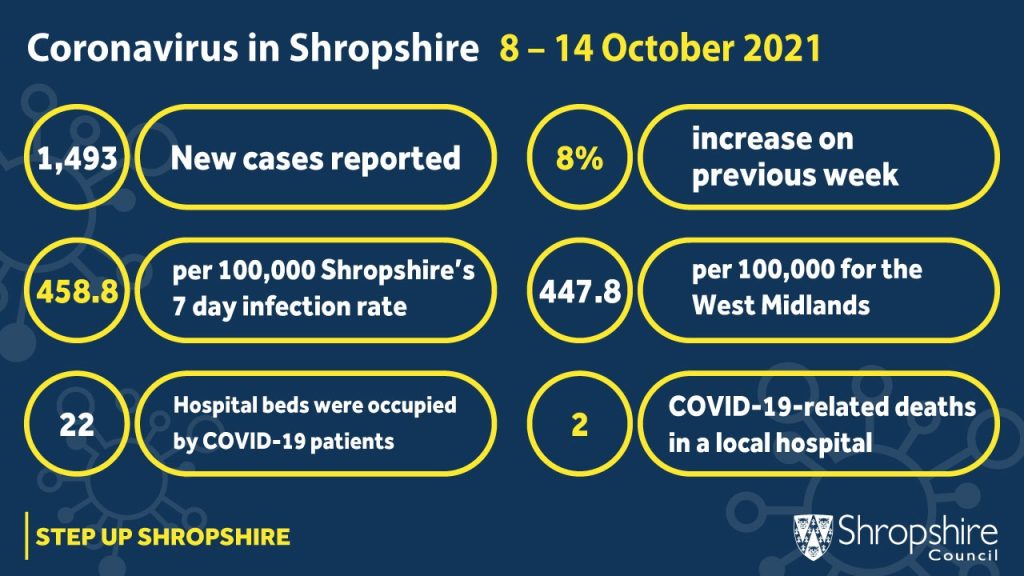Coronavirus: COVID-19 infection rate rises again with under 20s and over 65s most affected
During the seven-day period between 8-14 October 2021:
- 1,493 new cases reported
- An increase of 8% on the previous week
- The 7-day infection rate for Shropshire was 458.8 per 100,000
- It was 447.8 per 100,000 for the West Midlands, and 435.5 for England
- 22 hospital beds were occupied by COVID-19 patients
- 2 COVID-19-related deaths in a local hospital

Weekly figures 8-14 October
Rachel Robinson, Shropshire’s director of public health, said:
We’re starting to see the rate of infection rising again in Shropshire, particularly among young people and from smaller numbers, we are also seeing cases rising in our over 65s. Nearly 50% of all positive cases between 8-14 October were in the under-20s. The number of outbreaks in schools continues to rise so we have sent updated advice to all education settings in the county encouraging them to reintroduce measures to help stop the spread. Our health protection team are working with affected schools to help manage the situation.
Our local hospitals are still dealing with a high number of COVID-19 patients and sadly there were 2 more deaths. As winter approaches, rising rates and other seasonal viruses like the flu could put extra pressure on the NHS. We will continue to work closely with our health colleagues to monitor the impact.
We need to learn to live alongside Coronavirus as safely as possible. This means taking necessary measures to prevent the spread of the virus in our communities. Remembering to follow hands-face-space-fresh air is really important as these simple steps can make a big difference.
“Knowing what type of COVID-19 test to take is also key. If you have any symptoms, you should get a PCR test and self-isolate until you have received your result. If you are feeling well, you should still check for the virus by using a Lateral Flow Test at home.
“The NHS are starting to send out invitations for the flu vaccine and COVID-19 booster to eligible residents. I urge anyone who is eligible to protect themselves this winter.”
Councillor Simon Jones, cabinet member for public health, said:
For me, wearing a face mask when I go on public transport or into places like the supermarket is just a normal part of life now, and I know it is for many of you too. Testing twice a week at home is part of my normal routine, as is washing my hands regularly and social distancing when I feel it is necessary.
These are things we can all do as part of our every day lives to prevent the spread, reduce the pressure on the NHS and ultimately keep our communities safe.

